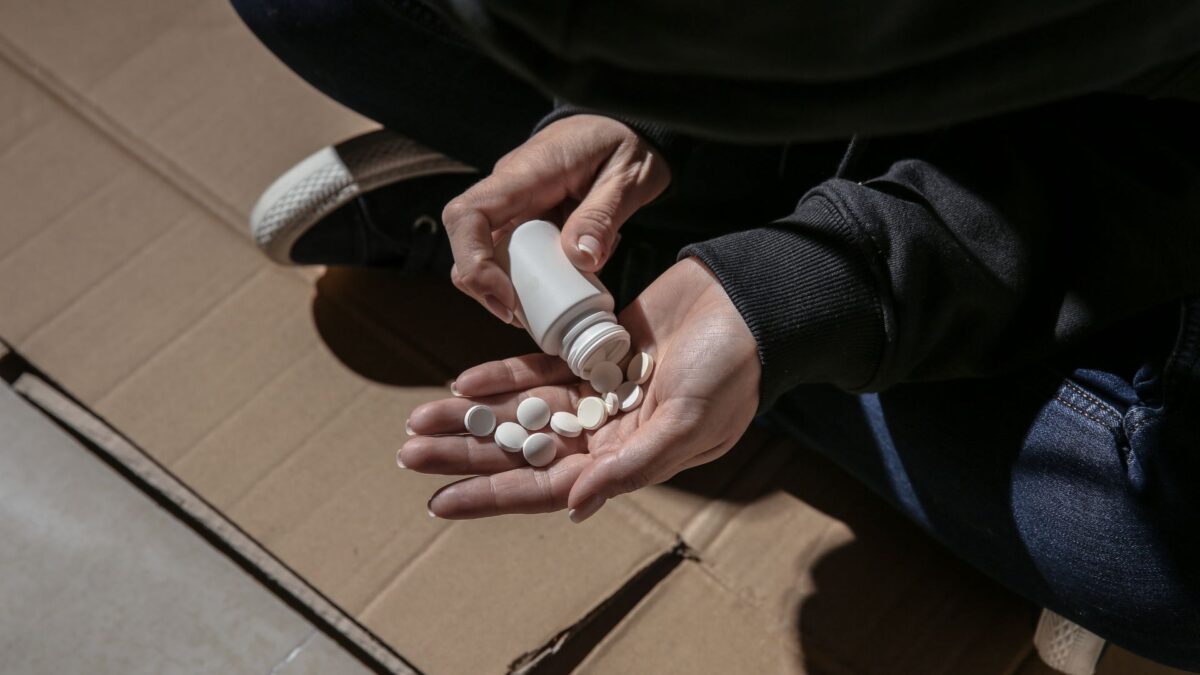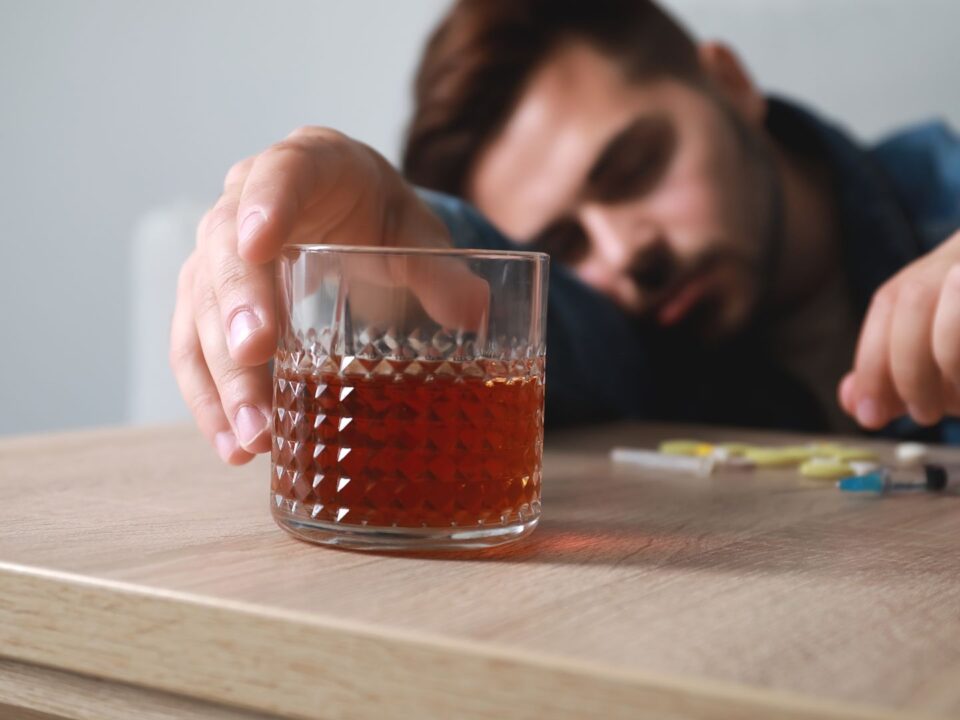
What Happens After I Complete an Inpatient Mental Health Program in Indianapolis?
April 29, 2025
The Dangers of Mixing Xanax and Alcohol: What You Need to Know
May 14, 2025Imagine waking up one day feeling trapped in a fog of anxiety, struggling to shake off the very medication that once provided you relief. Benzodiazepines, “benzos”, often prescribed for their calming effects, can easily become a double-edged sword. While they may help manage stress and insomnia in the short term, discontinuing these medications without professional guidance can lead to a rollercoaster ride of withdrawal symptoms, some of which can be dangerously severe.
Benzodiazepine withdrawal is complex, and attempting self-detox is not only risky but could also hinder your journey toward healing. At First City Mental Health Center, we offer a safe and supervised medical detox (withdrawal management) from benzodiazepines.
Introduction: Explanation of benzodiazepines and their use
Benzodiazepines, often referred to as “benzos,” are a class of medications commonly prescribed for anxiety, insomnia, and various other conditions. They work by enhancing the effects of a neurotransmitter called GABA, which helps calm the brain and nervous system. While they can provide much-needed relief for many individuals, there’s a darker side to their use that isn’t always discussed: withdrawal.
For those who have been using benzodiazepines regularly or for an extended period, stopping suddenly can lead to serious consequences. Understanding this process is crucial for anyone considering tapering off these medications. The journey through withdrawal can be fraught with challenges that are best navigated with professional guidance.
Let’s dive deeper into why self-detox from benzodiazepines can be particularly risky and explore safer alternatives available at facilities like First City Mental Health Center.
Understanding Benzodiazepine Withdrawal Syndrome: Symptoms and Risks
Benzodiazepine withdrawal syndrome can be a daunting experience. When someone stops taking these medications abruptly, the body reacts strongly. Symptoms may vary but often include anxiety, insomnia, and irritability.
Physical manifestations can also occur. Some individuals report headaches, muscle aches, or tremors. In severe cases, seizures may happen.
Psychological effects are equally concerning. Depression and panic attacks are common during this period. The fear of experiencing such symptoms can drive individuals to continue using benzodiazepines instead of seeking help.
Understanding these risks emphasizes the importance of a guided approach to detoxification. Many people underestimate how challenging withdrawal can be without proper support and medical intervention. Seeking help ensures that treatment is both safe and effective while minimizing discomfort during recovery.
The Dangers of Self-Detoxing from Benzos: Physical and Psychological Effects
Self-detoxing from benzodiazepines can seem tempting for those looking to escape dependency. However, this approach often leads to serious physical and psychological consequences.
Physically, withdrawal symptoms can be severe. Users may experience muscle cramps, tremors, or seizures. These conditions pose significant health risks that could require urgent medical attention.
Psychologically, the landscape is equally treacherous. Anxiety levels can spike dramatically during detox. Depression and paranoia might also emerge unexpectedly. The emotional turmoil makes it difficult to navigate daily life.
Additionally, individuals attempting self-detox often face an increased risk of relapse due to the overwhelming discomfort of withdrawal symptoms. Without proper support and guidance, overcoming dependence becomes a daunting challenge rather than a manageable process.
Seeking help ensures safety throughout the detoxification journey and lays a solid foundation for lasting recovery.
Potential Complications of Benzodiazepine Withdrawal Without Medical Supervision
Benzodiazepine withdrawal can lead to severe complications, especially when attempted without medical supervision. Individuals may experience heightened anxiety or panic attacks. These feelings can spiral out of control, making it incredibly difficult to cope.
Physical symptoms often manifest as tremors, sweating, and nausea. For some, seizures become a frightening reality during this process. The risk escalates significantly without proper monitoring and support.
Psychological effects include depression and mood swings that can disrupt daily life. Many find themselves battling intense cravings for the drug they are trying to quit.
In extreme cases, untreated withdrawal might result in delirium or psychosis. This chaotic mental state not only poses risks to the individual but also affects loved ones nearby. The importance of professional guidance cannot be overstated during such a vulnerable time.
Benefits of Seeking Professional Help for Detoxification
Seeking professional help for detoxification from benzodiazepines offers numerous advantages that significantly improve the recovery process.
Medical professionals are equipped to manage withdrawal symptoms, ensuring a safer experience. This support can greatly reduce discomfort and anxiety, making it easier to navigate this challenging phase.
Additionally, individualized treatment plans allow for tailored approaches based on personal health history and specific needs. This personalized care improves outcomes and enhances overall well-being during detox.
Support doesn’t just stop at physical health; psychological guidance is crucial too. Therapists and counselors provide coping strategies that help individuals address underlying issues contributing to substance use.
Furthermore, being in a structured environment fosters accountability. It creates a sense of community among peers who understand the journey toward recovery.
Engaging with experts allows access to resources such as medications designed to ease withdrawal symptoms safely. These options make the transition smoother while minimizing risks associated with self-detoxing efforts.
Alternatives to Self-Detox: Options for Safe and Effective Treatment
When considering alternatives to self-detoxing from benzodiazepines, professional treatment options stand out as safer and more effective. Medical supervision can provide a structured environment tailored to individual needs.
One popular choice is outpatient programs that offer flexibility while ensuring medical oversight. These programs often include therapy sessions, which help address underlying issues contributing to substance use.
Inpatient rehabilitation centers are another viable option. They provide comprehensive care in a supportive setting, allowing individuals to focus solely on recovery without external distractions.
Medication-assisted treatment (MAT) may also be beneficial. This involves using prescribed medications alongside counseling and behavioral therapies, easing withdrawal symptoms and cravings effectively.
Support groups like those offered by First City Mental Health Center create community connections with others facing similar struggles. Sharing experiences fosters encouragement and accountability during the healing journey.
Conclusion: Importance of Seeking Medical Support During Benzodiazepine Withdrawal.
Benzodiazepine withdrawal can be a challenging experience. The symptoms are often overwhelming, and the risks of self-detoxification only add to the complexity. Seeking medical support is not just advisable; it’s essential for ensuring safety and effectiveness during this critical time.
A professional team understands the nuances of benzodiazepine dependence. They provide tailored treatment plans that address both physical and psychological needs. With their guidance, you can navigate withdrawal more safely, minimizing potential complications.
Choosing to seek help from professionals at facilities like First City Mental Health Center can make all the difference in your recovery journey. You deserve care that prioritizes your well-being while equipping you with tools for lasting healing.






